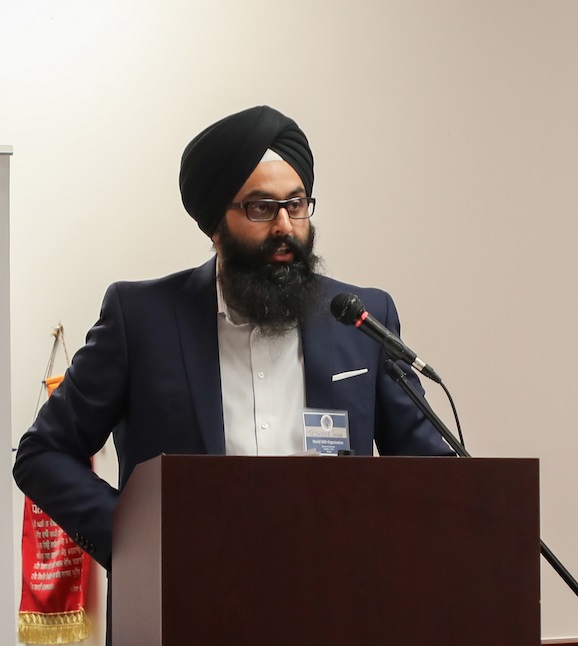THE World Sikh Organization of Canada calls for urgent increased engagement and outreach to racialized communities in the battle against COVID-19.
The WSO said that recent attention has been drawn to the disproportionately high rates of COVID-19 in racialized communities and particularly in areas with large South Asian populations such as Brampton and Surrey. As researchers and public health officials have pointed out, this pandemic has exacerbated the structural deficits faced by residents in these communities. The pandemic has made it clear that we do not all have the same privilege and choices.
“A large percentage of the population in these areas are essential workers in manufacturing, distribution and transport industries. These workers keep essential sectors open, making sure Canadians are able to access what they need, when they need it. In order to do so, workers in these jobs do not have the privilege of working from home. Jobs in these sectors are often precarious, offering few protections for workers. This can mean no access to sick leave and little protection against unsafe employment conditions, creating additional risk related to COVID-19. Many families live in multi-generational housing, which is a community strength but now presents unique challenges. Furthermore, communities like Brampton receive less health care funding per capita when compared to other communities across Ontario, which means the community has fewer resources to meet the needs of residents,” the WSO noted.
Despite the additional risks faced by racialized communities, which is evident across jurisdictions and was known early in the pandemic, there has been a glaring lack of engagement and outreach to communities, including the Sikh community, it added.
The WSO said it has been working to fill the gap since March with critical interventions such as:
- Assisting in the development of contextualized guidelines for Gurdwaras in the wake of changing restrictions
- Supporting Gurdwaras in creating programs for takeout langar.
- Supporting Gurdwaras engagement with public health on contact tracing
- Developing guidance documents and supports to meet the unique needs of International Students
- Government advocacy for the collection of race-based and SES data
- Culturally sensitive public education to counter misinformation and support health promoting practices
- Social media campaigns to highlight the Sikh presence in the front lines across sectors
- Sikh Family Helpline, providing COVID-19 assistance with respect to:
- International student supports
- Individuals concerned about workplace disclosure, rights and responsibilities
- Understanding changing restrictions and assessment centre criteria
- Mental health supports
- PPE accommodation in the health care sector, including the development of a guidance document for Sikh health care workers and the use of N95 masks
- Assistance to Sikh law enforcement officers requiring PPE accommodations
- Guidelines to provide competent and religiously sensitive care to people of the Sikh faith (in hospitals or long term care homes) in response to no visitor policies
- Local PPE drives
All of these initiatives have been community-driven and have not received any external or government outside support.
WSO President Tejinder Singh Sidhu said on Monday: “We are deeply concerned by the lack of meaningful community outreach and engagement in combating COVID-19. There has been very little attempt to contextualize health information and restrictions for communities like the Sikh community.
“The lack of outreach to community groups across Canada is not just disappointing, it is costing us lives.
“Furthermore, there needs to be an acknowledgement of the growing racism directed towards racialized residents in communities with high COVID-19 rates, and aggressive and immediate action is needed to combat this.
“Communities, such Brampton, that are becoming the epicentre of the COVID-19 outbreak need target investments for more testing capacity and isolation centres and there needs to be better employment protections for the working class.
“Without urgent attention to addressing these issues, we fear that our communities will continue to suffer the disproportionate effects of this pandemic.”













